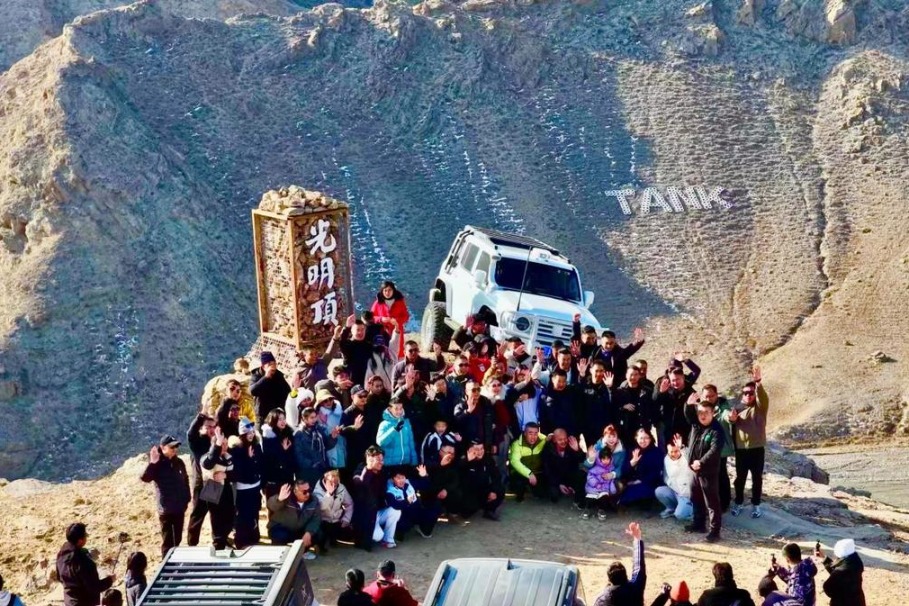Better telling of science stories encouraged


Skillful individuals key to introducing national achievements to world
Chinese science communicators are being encouraged to overcome the challenges of the complicated international environment and enhance their storytelling skills to popularize science, experts said at an event in Beijing on Saturday.
Wang Jinzhan, a member of the leading Party members group of the China Association for Science and Technology, said that information technology, artificial intelligence and other tools of innovation have facilitated the spread of China's science stories.
Meanwhile, fiercer global competition in science, and changing dynamics among countries have posed challenges for science communicators devoted to international communication.
"There remains a long road ahead to reach the goal of enabling international audiences to access, understand and recognize science stories from China," he said.
Wang was speaking during Talks on Sci-tech Communication, a series of events that gather domestic and international experts in communication, science and technology to discuss ways to share stories about Chinese scientists, and promote nongovernmental exchange in the fields of science and the humanities.
They are organized by the Research Institute of International Sci-tech Communication, which was established by the China Association for Science and Technology and China Daily in January last year.
Wang called for exploring more creative ways tailored to different audiences and platforms to popularize science, as well as integrating hard science stories with traditional Chinese values.
He said topics like how China tackles climate change, controls epidemics, explores space, as well as its progress in fundamental and frontier research and major projects should be further popularized.
"It is also important to train talented individuals with knowledge of both science and communication, who are fluent in Chinese and foreign languages and understand both domestic and foreign environments," he said. "We should create better working environments and development paths for them."
Wang Hao, deputy editor-in-chief of China Daily, said science and technology have huge potential for generating stories that can showcase a true, multidimensional and panoramic view of China.
Amid changes to the international order and reforms taking place in the communications sector, he called for better concerted efforts to tell stories of Chinese scientists to the rest of the world.
Fang Xin, an academician at the World Academy of Sciences for the advancement of science in developing countries, and former deputy Party secretary of the Chinese Academy of Sciences, said that international communication on science and technology can help promote communication and cooperation among world scientists, and advance exchange between regions.
"Building an efficient network for sci-tech communication is not only indispensable to the development of science, the economy and society, but is also significant in raising the overall literacy of the public," she said.
Fang said multiple and easy-to-understand channels should be deployed to popularize science. "Regarding hotly discussed topics, such as genetically modified technology and waste disposal approaches, we should step up communication and dialogue with the public to gain a consensus," she said.
Andy Mok, a senior research fellow at the Center for China and Globalization, shared his thoughts on artificial intelligence and the potential role of China in the rapidly evolving field during the event.
He said China has unique strengths in developing AI, such as its vast and diverse data resources, comprehensive government support, strong technical talent pool and a strategic focus on intelligent content curation and human feedback, which "suggest that the country is well-positioned to lead in the next generation of AI advancements".
Mok stressed China's potential ascendancy in AI, or any other country's progress in AI, can complement each other and contribute to the collective progress of humanity.
"As we venture into this new era of AI, let us do so in the spirit of shared endeavor and with a vision of a better world," he said.
- US defense policy act fuels Taiwan tensions
- New Year holiday to bring peak in travel
- China's top 10 sci-tech news events unveiled
- Over 700 generative AI large model products complete filing in China
- Beijing accuses Lai of 'kowtowing' to US
- Hong Kong's global standing boosted with increasing presence of intl organizations: justice secretary





































